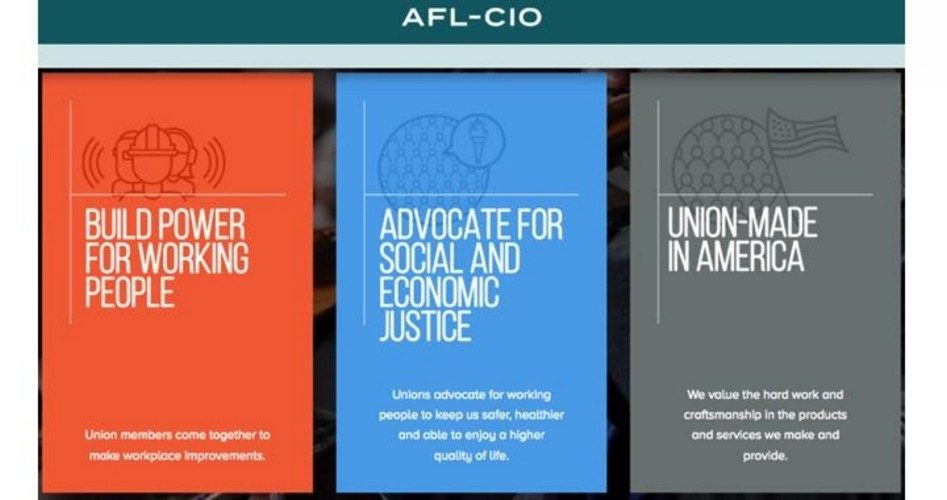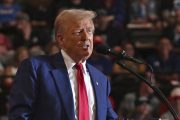
“President Trump ran against the TPP throughout his campaign and formally withdrew from the agreement last year, rightly finishing what working people started. His action kept a central promise to millions of hardworking Americans,” wrote AFL-CIO President Richard Trumka in a recent opinion piece for USA Today.
At first glance, it would appear that Americans who are concerned about giving up our national sovereignty for a (so-called) free trade deal have a strong ally in the leadership of the AFL-CIO. (The AFL-CIO is an “umbrella” for several U.S. labor unions, and holds a great deal of political clout, especially among Democrats.) But Trumpka and his AFL-CIO oppose the Trans-Pacific Partnership (TPP) for different reasons, and those differences could lead Trumpka and labor union leaders to line up for a different deal — what they consider a trade deal that would be “good for labor.”
In his op-ed, Trumpka wrote, “President Trump backtracked from his ill-advised trial balloon [of relaunching TPP negotiations] and still has the opportunity to fulfill his long-standing promise to fix trade policy and level the economic playing field. That requires a fundamental new direction for our trade deals that lifts up the workers who built this country.” (Emphasis added.)
What is the new direction that Trumpka is calling for? Is it for the United States to nix all these multilateral trade deals that are sucking the life out of American national sovereignty?
Hardly. Trumpka’s “new direction” could be interpreted as that he thinks these agreements just do not go far enough. He stated, “Providing real economic security for working people starts with incorporating strong labor protections into our trade agreements that will be swiftly and robustly enforced.” (Emphasis added.)
And who would be in charge of this swift and robust enforcement? An international body, created by TPP! In other words, Big Labor is not against sovereignty-destroying trade agreements, per se. They just want what Trumpka calls “strong labor protections” incorporated into the agreements. It apparently matters little to Trumpka and Big Labor if America is submerged into an international super-state, as long as there are “strong labor protections” in the agreements.
“We won’t secure a fair and just global economy,” Trumka explained, “until we ensure that all working people earn fair wages, enjoy safe workplaces, and have a voice on the job.”
This reminds me of the time, years ago, when I wrote my then-senator, David Boren, to express my concern about the North American Free Trade Agreement (NAFTA). I expressly said that I was not writing over a concern about jobs (which was the usual reason given in the media for someone opposing such deals — remember Ross Perot’s “big sucking sound”), but rather that this agreement could lead to the integration of the United States into a common government and economy with Canada and Mexico, and a general loss of our nation’s sovereignty.
What I got back from Senator Boren was an obvious form letter, which assured me that NAFTA would create more jobs in Oklahoma and America, not less. No mention was made of my concern about our national sovereignty. So I wrote back, voicing my concerns about sovereignty again, and noting that I had received a form letter that indicated that no one in his office had paid any attention whatsoever to the issue that I had raised concerning sovereignty.
As an article from The New American for June 11, 2014, written by Joe Wolverton and titled “U.S. Dairy Industry May Pull Support for Trans-Pacific Partnership,” stated, “The ultimate aim of the TPP is the creation of a regional super government — thus the stonewalling of federal lawmakers who dare seek to assert some sort of oversight.”
These deals are sold as just about facilitating “trade,” but they are really much more than that. They dictate much of our domestic economy — through decisions made by unelected bureaucrats, rather than our elected members of Congress, as the Constitution requires. Opponents of “free” trade agreements are vilified as enemies of the free market, but what these deals create is not “free” trade among nations, but rather government-managed trade.
Perhaps no more powerful illustration can be offered that these agreements are not driven by a desire for the free market thanthe European Union, which was created by the grandfather of all trade deals and has morphed into an increasingly authoritarian super-state, with most laws in countries being dictated by unelected EU bureacrats. Not surprisingly, the EU recently celebrated the 200th birthday of Karl Marx, the author of The Communist Manifesto.
Americans should oppose the present TPP, not to get a “better” TPP deal, but rather to have no TPP deal at all.
Image: Screenshot from an AFL-CIO ad




